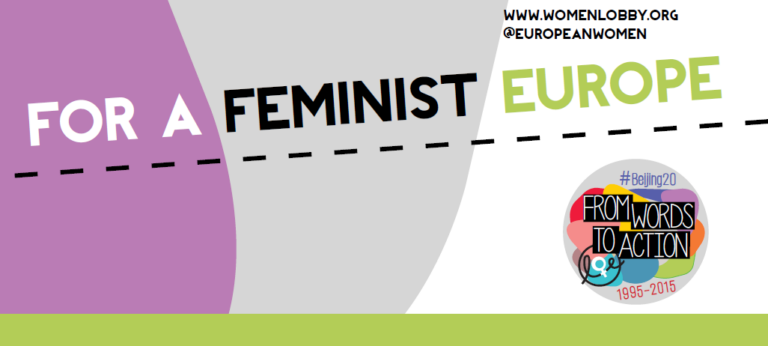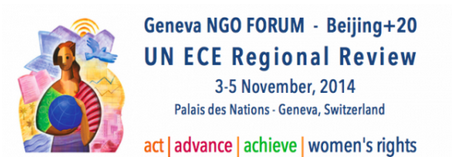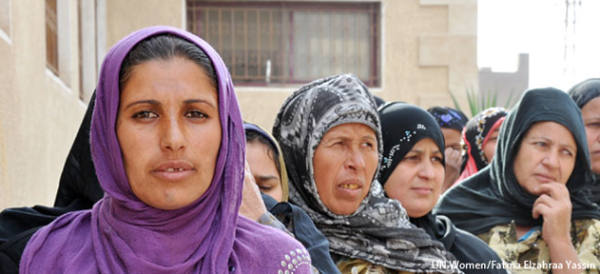[United Nations News Centre, New York, 27 October 2011] With more than five out of every seven people in the world lacking adequate social security, a high-level United Nations panel today called for guaranteeing basic income and services for all, not only as a means to ensure peace and stability but also to boost economic growth. Measures providing income security and scaling up essential health services are affordable even in the poorest countries, costing as little as 1 to 2 per cent of gross domestic product (GDP), although international support is needed for some low-income countries.
Panel’s report – Social Protection Floor for Fair & Inclusive Globalization. This floor would guarantee basic income in the form of social transfers in cash or kind, such as pensions, child benefits, employment guarantees and services for the unemployed and working poor, while providing universal access to essential affordable social services in health, water and sanitation, education, food, housing, and other services defined according to national priorities…….
OLDER PERSONS & SOCIAL PROTECTION – IE POVERTY REPORT
http://daccess-dds-ny.un.org/doc/UNDOC/GEN/G10/125/83/PDF/G1012583.pdf?OpenElement__
The importance of social protections, social security, for WOMEN, and very much for older women, and for gender equality, is noted throughout this Report.
The 2010 annual report of the independent expert on extreme poverty addresses the role that social protection systems play in reducing extreme poverty and contributing to the realization of human rights of older persons. In particular, the report focuses on the relevance of social pensions.
The world population is ageing, to the point that the number of persons over 60 years of age is likely to increase by 200 percent by 2050. The phenomenon of poverty in old age is increasingly catching the attention of analysts and policy-makers. Considering the vulnerability of older persons, States must take appropriate measures to establish social security schemes that provide benefits to all older persons without discrimination of any kind and ensure equal rights for men and women.
Social pensions consist of cash benefits received by persons above a given age that do not require prior compulsory contributions from beneficiaries, employers or the State. Social pensions are an important dimension of social security systems. Today, many people worldwide work outside the formal employment sector and traditional informal support systems for older people are changing under the pressure of increased longevity, widespread poverty, the impact of HIV/AIDS and migration. Contributory pension schemes (e.g. employment-based pensions) only reach a minority of all older persons.
In this report, the independent expert calls on States to recognize that social pensions are critical elements for the progressive realization of the right to social security for older persons. The report also provides recommendations on how to ensure that non-contributory pensions comply with core human rights standards. Finally, it addresses the role of international assistance and cooperation in the field of social security.
UN SPECIAL RAPPORTEUR ON EXTREME POVERTY URGES COUNTRIES
TO FOCUS SOCIAL PROTECTIONS ON GENDER INEQUALITIES
NEW YORK (25 October 2010) – Social protection systems with a gender focus can increase women’s participation in economic life, provide them with income security in old age and improve nutritional levels and food security, the UN Special Rapporteur on Extreme Poverty told the General Assembly.
Warning that “poverty is not gender-neutral,” Magdalena Sepúlveda urged states to “devote increased attention to gender equality while designing, implementing and evaluating social protection programmes within a human rights framework.”
Women are more vulnerable to poverty because of discrimination and gender inequality. Therefore, “the achievement of the Millennium Development Goals greatly depends on the strengthening of women’s enjoyment of the full range of their human rights, including gender equality and women’s empowerment,” she noted while presenting her report on human rights and extreme poverty.*
She acknowledged that in recent years, many countries have put in place or strengthened social protection initiatives to address the persistence of extreme poverty. Such social protection measures were essential to accelerating progress on the achievement of the Millennium Development Goals (MDGs).
The Special Rapporteur warned, however, that some social protection schemes specifically targeting women within households could, if badly designed, exacerbate or contribute to inequalities.
“Social protection programmes must be complemented by other social policies aimed at increasing women’s economic autonomy such as ensuring access to education, land, productive resources and credit, fair inheritance rights, full legal capacity, justice and freedom from all forms of violence,” she stressed.
Social protection measures must also acknowledge the role played by women as providers of care, without reinforcing patterns of discrimination and negative stereotyping.
“Social policies must encourage a better balance in the way men and women share household responsibilities, in particular the care of children and older persons,” she said.
In her report to the General Assembly, Sepúlveda highlights the importance of social protection measures in facilitating the achievement of the MDGs and provides recommendations on the core elements of a rights-based social protection system, including the meaningful integration of gender-related concerns.
Magdalena Sepúlveda is the Special Rapporteur on the question of human rights and extreme poverty since May 2008. She is a Chilean lawyer currently working as Research Director at the International Council on Human Rights Policy in Geneva. She has extensive experience in economic, social and cultural rights and holds a PhD in international human rights law from Utrecht University.





